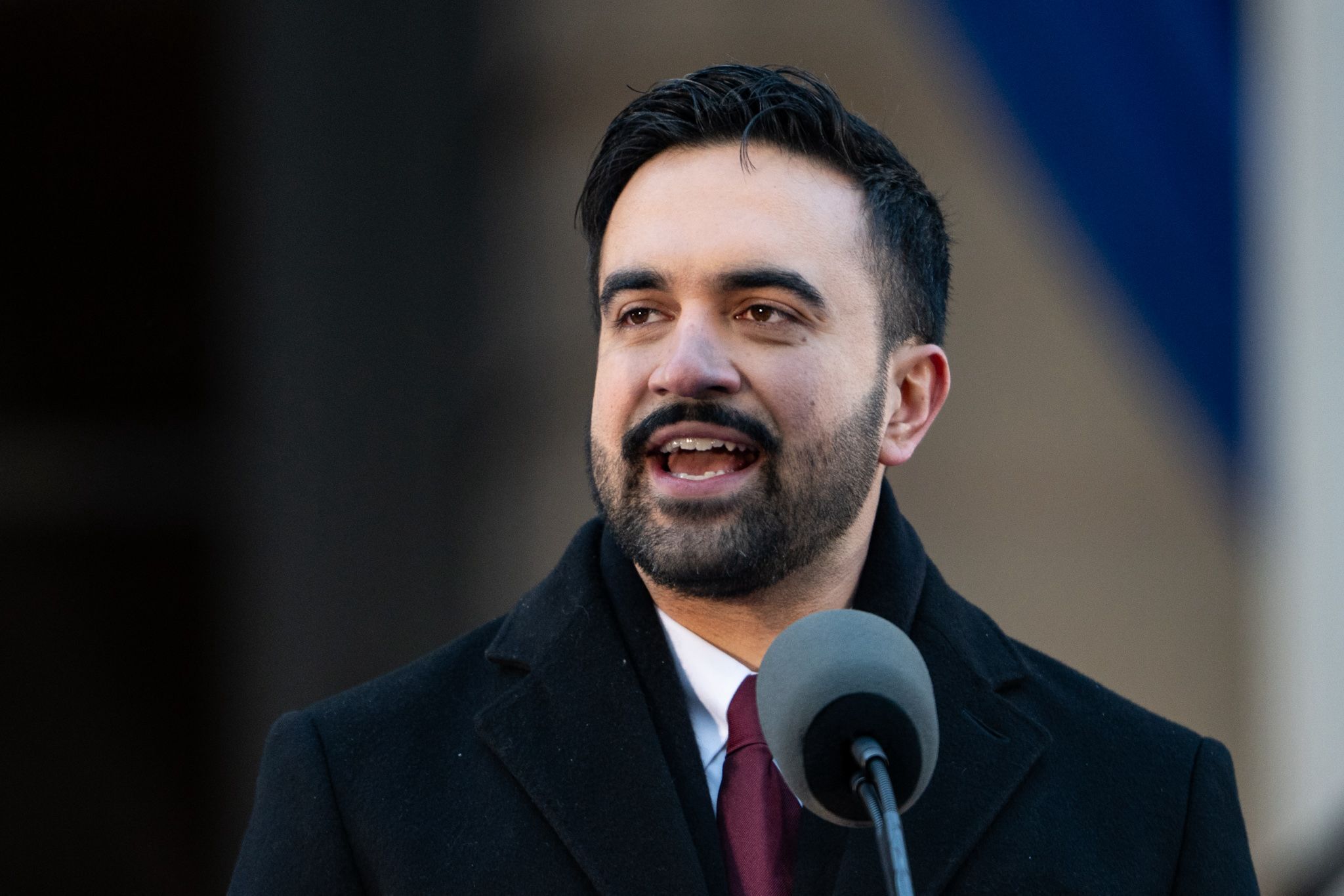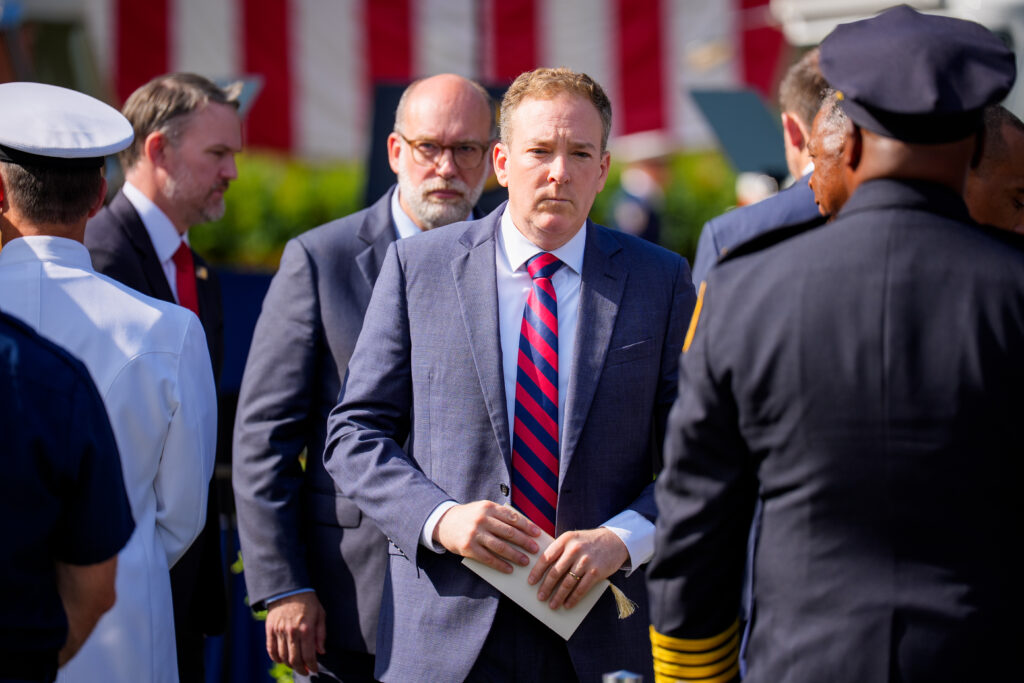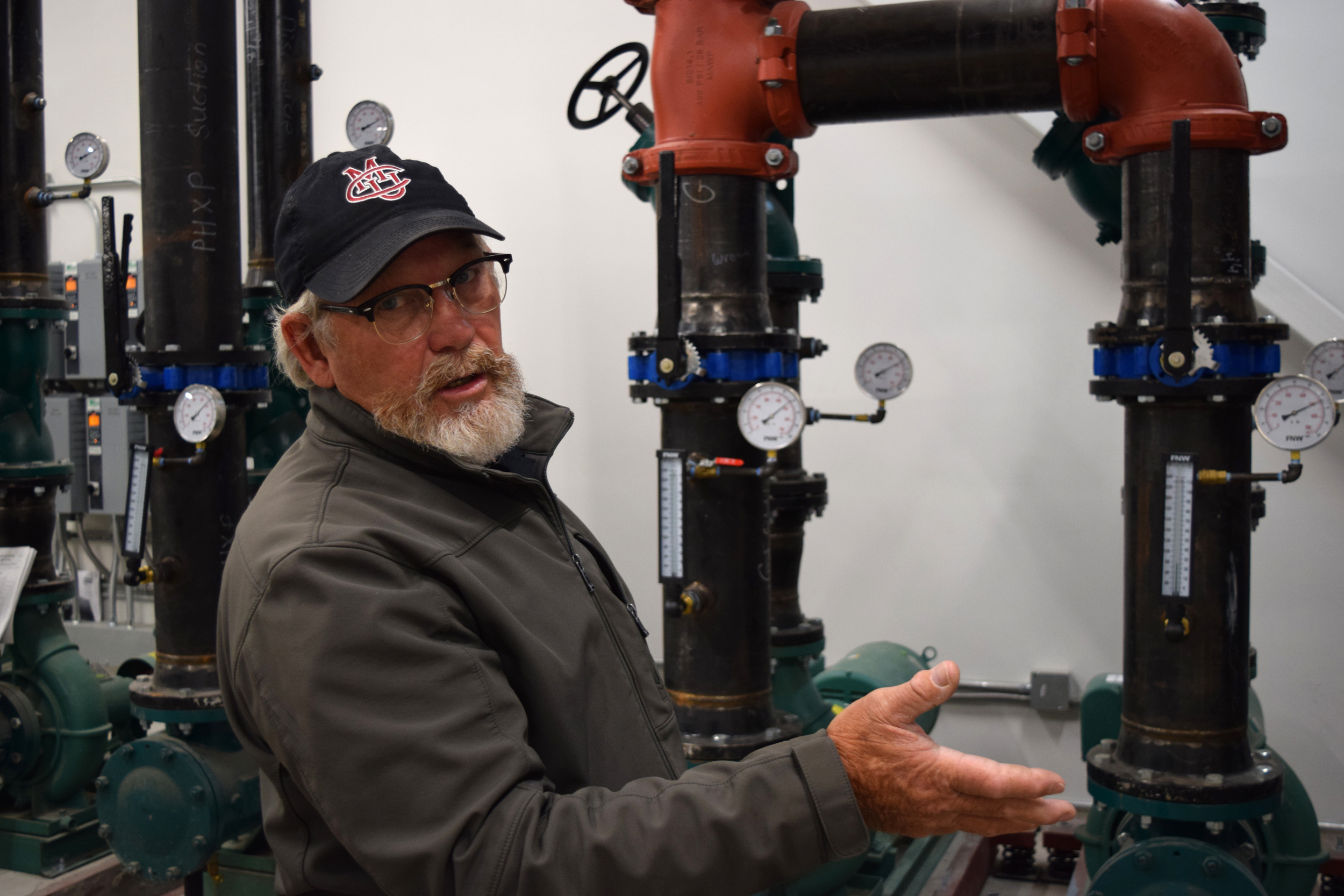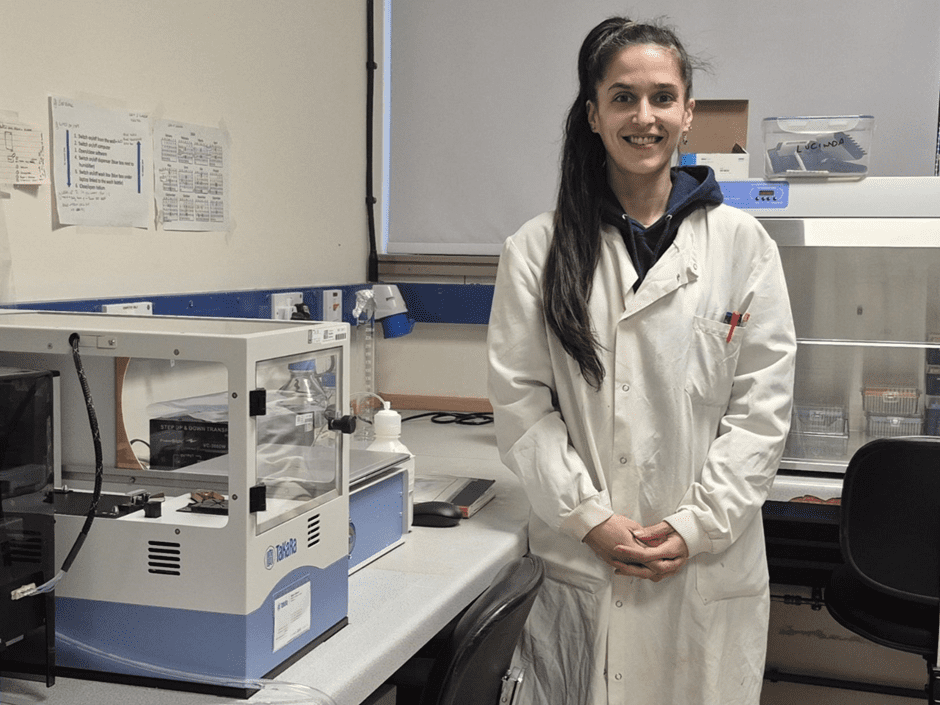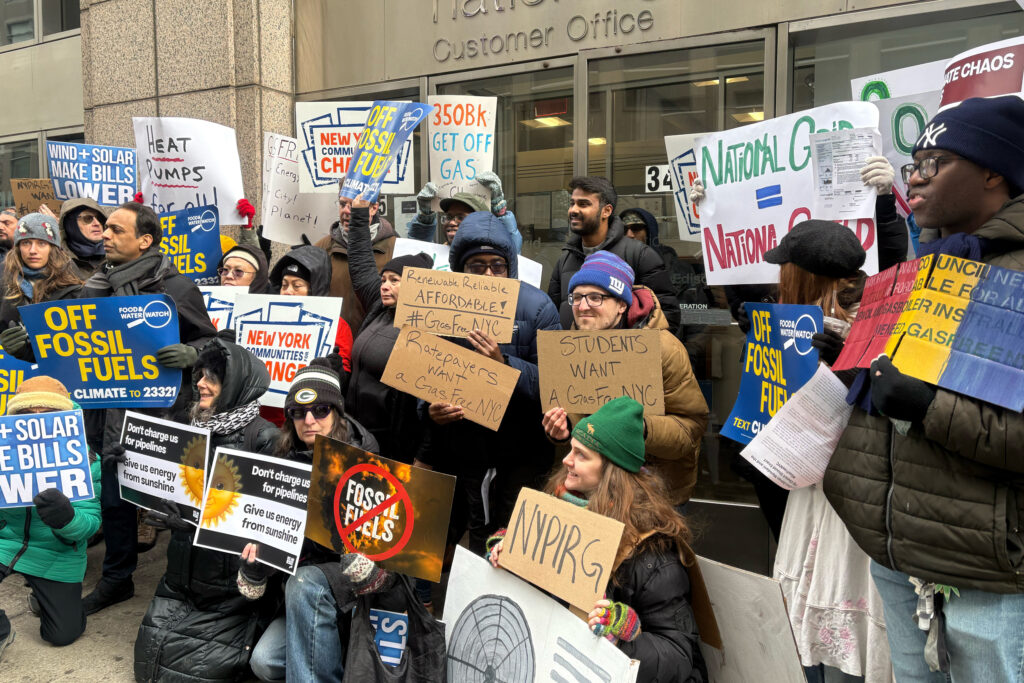A prominent scientist whose work has helped steer a restoration of the Everglades that is among the most ambitious of its kind in human history will surrender Thursday (July 17) in Miami for a 10-day jail sentence, a consequence of a bitter legal dispute with his former employer.
Tom Van Lent is accused of stealing “trade secrets” and destroying files belonging to the Everglades Foundation, an environmental group he helped shape into one of the most influential in Florida. He was one of the foundation’s first employees when he was hired in 2005 and served as its senior scientist, although he was not in that role when he left the organization in 2022. He was convicted a year later of indirect criminal contempt after a judge ruled he violated an injunction barring him from disclosing confidential information and ordering him to return the materials.
Van Lent has denied the allegations and says the foundation constructed a politically motivated smear campaign related to his concerns over a reservoir championed by Republican Gov. Ron DeSantis. The 16-square-mile reservoir, characterized by the governor as the “the crown jewel of Everglades restoration,” would be the largest of its kind the U.S. Army Corps of Engineers has built anywhere in the country. The foundation supports the reservoir, on which construction began in 2023, putting itself and Van Lent at odds.
The foundation contends the only motivation behind the litigation is to recover materials it says Van Lent downloaded and destroyed. It has said in court filings the “trade secrets” consist of memos and reports, white papers and confidential presentations related to the spectrum of issues Van Lent worked on while at the foundation. The organization also suggests Van Lent compromised the materials potentially to enrich himself or for the benefit of Friends of the Everglades, an environmental group where he now serves as senior science advisor.
“They are trying to crush me, and it’s not because they have trade secrets, but they do have other secrets that they are trying to hide. One of them is that they put politics and money above the Everglades, above fact, above science,” Van Lent said of the foundation, in an interview with Inside Climate News. “I’ll just do whatever I can do, which is continue to speak the truth.”
A Dispute Over Documents
Van Lent’s situation has stunned the otherwise tight-knit community engaged in the restoration of the Everglades, a watershed spanning much of the peninsula that is responsible for the drinking water of some 12 million Floridians. He also faces a $177,000 judgment for the foundation’s attorney fees, as a result of his indirect criminal contempt conviction. He said he and his wife have had no choice but to declare bankruptcy, and a GoFundMe campaign organized by his attorney has raised about $7,100 as of July 2.
Van Lent’s legal troubles began soon after he left the Everglades Foundation, when the organization filed a civil complaint in state court accusing him of a “secret campaign of theft and destruction of sensitive Foundation materials in preparation for his departure,” according to the initial filing. The foundation said Van Lent destroyed “thousands of files and folders containing the Foundation’s copies of proprietary scientific models and related data and copies of the work product the Foundation had employed him to create over his 17 years of employment.”
Judge Carlos Lopez granted the foundation a rare ex parte injunction, usually reserved for extreme emergency situations, and ordered Van Lent to return the files. A settlement was reached, but a few weeks later the foundation accused Van Lent again of deleting files and violating the injunction. In 2023 the judge found Van Lent guilty of indirect criminal contempt. Van Lent’s attorneys appealed, and a state appeals court sided with the foundation in November.
Van Lent denied stealing or destroying files during his 2023 sentencing hearing and testified the only documents he deleted contained personal information such as income tax return records.
“I thought I complied with all their requests,” he testified. “I was doing my utmost to try to reconcile the issues, and I had no intention of flouting the directive of the court or dismissing the court’s authority, and if I did so I sincerely apologize.”
Van Lent agreed to surrender at the Dade County Courthouse to a court liaison after an attorney for the foundation, acting on behalf of the court to execute Van Lent’s sentence in his conviction, filed a Motion for Writ of Bodily Attachment. The motion authorized law enforcement officers to take Van Lent into custody at any time. The foundation paid the TYZ Law Group, Kozyak Tropin & Throckmorton and CMA Strategic Advisors more than $722,000 in legal fees in 2022, according to the most recent available tax filing.
“As an officer of the court and the court-appointed prosecutor, I had a duty to see this matter through and ensure that Van Lent served his jail sentence,” reads a statement from Jorge Piedra, managing partner at Kozyak Tropin & Throckmorton. “As the Court found, Dr. Van Lent willfully violated court orders, lied to the court, showed no remorse, and openly disregarded the authority of the judicial system. It was my responsibility to carry out the judge’s orders—not only to see that justice was served, but to honor the time, effort, and resources invested in the criminal contempt proceedings.”
The Everglades Foundation referred inquiries to Piedra. “This matter is between Dr. Van Lent and the Court. The Everglades Foundation has nothing to do with Dr. Van Lent’s surrender and has never taken a position about the Court’s sentencing,” Jacquie Weisblum, vice president of communications, said in a statement.
Friends of the Everglades, the advocacy organization that hired Van Lent after he left the foundation, has stood by Van Lent during the process. “The Everglades Foundation’s scorched-earth tactics have distracted from the urgent cause of Everglades restoration which has been Dr. Van Lent’s life’s work. Now the Everglades Foundation seeks Dr. Van Lent’s imprisonment,” reads a statement attributed to Philip Kushlan and Peter Upton, president and vice president respectively of the organization’s board of directors.
“Friends of the Everglades has a legacy of integrity that dates back to our founding by Marjory Stoneman Douglas in 1969, and we are proud to have Dr. Van Lent on our team. In light of this outrageous persecution of Dr. Van Lent, we are more resolved than ever to be a force for positive change and sound science.”
Tension Between Science and Politics
Since it was established in 1993 as a science-based advocacy nonprofit, one of the ways the foundation has risen to prominence is by forging relationships with top leaders. When former Gov. Charlie Crist, then a Republican, announced in 2008 a $1.75 billion plan to buy out U.S. Sugar—a company responsible for nearly 10 percent of all the sugar produced in the country—and put the land toward Everglades restoration, the news came as a surprise to almost everyone except the foundation, which had been involved in the negotiations for months. The deal later was downsized during the Great Recession.
Through the years the foundation has maintained its influence. One of its founders is Paul Tudor Jones II, a billionaire Wall Street investor. Its board of directors includes the golf champion Jack Nicklaus, and its chief executive officer is Eric Eikenberg, a seasoned political strategist who before joining the foundation served as chief of staff to Crist and the late U.S. Rep. E. Clay Shaw, Jr., a Republican.
This story is funded by readers like you.
Our nonprofit newsroom provides award-winning climate coverage free of charge and advertising. We rely on donations from readers like you to keep going. Please donate now to support our work.
Donate Now
In June the foundation hosted a summit on the Everglades in Washington that included Jones; Doug Burgum, secretary of the Department of the Interior; Sen. Rick Scott and Rep. Brian Mast, both Republicans; and Rep. Debbie Wasserman Schultz, a Democrat; among others. The foundation also released a study that concluded the Everglades delivers $31.5 billion annually across key sectors of the region’s economy including real estate, tourism and water supply. Later that month the foundation announced Shannon Estenoz, former assistant secretary of the Interior for Fish and Wildlife and Parks in the Biden administration, would join the organization as its first chief policy officer.
Van Lent was the foundation’s first scientist. He provided analysis and recommendations for the organization and other groups that lacked a science staff, informing the Everglades advocacy community’s positions on proposals made by elected leaders and government agencies. Some of his recommendations were incorporated into major restoration projects.
The $3.5 billion reservoir that started the schism between the foundation and Van Lent has been a crucial component of Everglades restoration since the massive effort was signed into law in 2000. The reservoir is aimed at reconnecting Lake Okeechobee, the state’s largest lake, with the sawgrass marshes of the river of grass to the south. It has been controversial primarily because of its location in an agricultural region dominated by politically powerful sugar growers. DeSantis has pushed the reservoir as a remedy for the toxic algae that in recent years has become one of the most prominent environmental problems facing the state, prompting the governor to invest billions of dollars in Everglades restoration.
Van Lent and other environmental groups have raised concerns about the reservoir’s design, which they say does not meet restoration requirements. The groups have voiced reservations about whether the reservoir will convey enough water south or clean the water to established standards. The groups also say the design failed to factor in climate change, among other issues. The Everglades Foundation said it began supporting the reservoir as framed after the state was able to ensure the water quality would in fact meet standards. The foundation predicted the benefits would ripple across the watershed. Construction is scheduled to be complete in 2029.
Tension between science and politics long has been at the heart of Everglades restoration, and Van Lent is not the first scientist to have found himself at the center of controversy. Political strife and persecution in the 1990s over his proposed water quality standard for the river of grass forced Ron Jones, then a scientist at Florida International University, to leave Florida. He now teaches at Willamette University in Oregon. The state eventually adopted his standard, and work continues today to meet it.
“I just think it’s terrible what they’re doing to him. They have politicized science to the max, and here’s an organization that is supposed to be independent from all that,” said Jones, who was close with the other founder of the Everglades Foundation, George Barley, a wealthy real estate investor who died in 1995. “It goes against everything that I thought that the foundation would have stood for.”
“When you have a scientific dispute, you don’t take actions to put your opponent in jail. Whatever the rights or wrongs, this is not the way to encourage decent debate on Everglades issues.”
— Stuart Pimm, a specialist in endangered species at Duke University
Others involved in the $23 billion restoration of the Everglades are concerned about whether the “trade secrets” the foundation sued over involve scientific findings that are important to the effort, which is publicly funded and historically has been collaborative. Eve Samples, executive director at Friends of the Everglades, noted that Van Lent’s incarceration comes as the Trump administration has targeted scientific and environmental programs across the federal government.
“This extremely aggressive legal action against Dr. Van Lent is playing out as we’re seeing science silenced around the country, and it certainly isn’t a good look for the Everglades Foundation,” she said. “The Everglades Coalition as a whole has always been about sharing knowledge, and Tom has been at the heart of that over many decades. It’s just surprising that any organization would claim there are trade secrets in this important shared cause.”
Stuart Pimm, a specialist in endangered species at Duke University whose research has included the habitat of the Everglades’ Cape Sable seaside sparrow, said he was “traumatized” by Van Lent’s situation. He feared it would have a chilling effect on science across the scope of the massive restoration effort.
“I can’t imagine any respectable scientist who would want to work on Everglades issues after this,” he said. “It means that anybody who wants to propose a criticism of what the Everglades Foundation wants runs the risk of being harassed. And you know we have scientific disputes. I understand that. But when you have a scientific dispute, you don’t take actions to put your opponent in jail. Whatever the rights or wrongs, this is not the way to encourage decent debate on Everglades issues.”
Van Lent’s legal problems will not end once he serves his jail sentence, as the foundation’s initial complaint against him remains unresolved, said Michael Rayboun, his attorney.
“While I remain extremely depressed and frustrated that the foundation and its attorneys are treating such a well-respected and esteemed scientist like a criminal,” he said, “I look forward to the underlying case being resolved in his favor because it is based on a demonstrable lie that a contract exists between the foundation and Dr. Van Lent.”
Since leaving the foundation Van Lent has continued his work at Friends of the Everglades. A recent project involved evaluating how much conservation land south of Lake Okeechobee is necessary for the sake of the Everglades, lakes and delicate estuaries to the east and west that have been hammered by toxic algae. He is not sure what to expect from his upcoming time in jail and frets for his wife, his high school sweetheart. The couple has two grown boys.
“It’s not going to shut me up,” he said of his incarceration. “If this can happen to me it can literally happen to any employee who their employer wants to go on a vindictive campaign. Unless this is stopped it is a textbook on how to stomp on any employee you want to. It should be chilling to everybody.”
About This Story
Perhaps you noticed: This story, like all the news we publish, is free to read. That’s because Inside Climate News is a 501c3 nonprofit organization. We do not charge a subscription fee, lock our news behind a paywall, or clutter our website with ads. We make our news on climate and the environment freely available to you and anyone who wants it.
That’s not all. We also share our news for free with scores of other media organizations around the country. Many of them can’t afford to do environmental journalism of their own. We’ve built bureaus from coast to coast to report local stories, collaborate with local newsrooms and co-publish articles so that this vital work is shared as widely as possible.
Two of us launched ICN in 2007. Six years later we earned a Pulitzer Prize for National Reporting, and now we run the oldest and largest dedicated climate newsroom in the nation. We tell the story in all its complexity. We hold polluters accountable. We expose environmental injustice. We debunk misinformation. We scrutinize solutions and inspire action.
Donations from readers like you fund every aspect of what we do. If you don’t already, will you support our ongoing work, our reporting on the biggest crisis facing our planet, and help us reach even more readers in more places?
Please take a moment to make a tax-deductible donation. Every one of them makes a difference.
Thank you,






